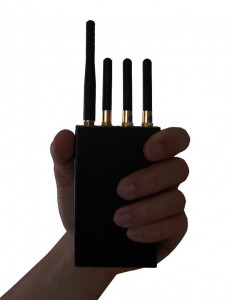In this fourth and final blog of the series devoted to electronic alarms, we explore a key issue for the selection and installation of an ad hoc electronic alarm system. Let us see the logic on which a choice between a wired and a wireless system is based.
Wired vs. Wireless
The choice between a wired system or a wireless system often provokes as much discussion in a family as there is when choosing between a seaside or countryside holiday, or between having a dog or a cat as a pet.
Let’s start from the conclusion, by stating that a wired system is, everything else being equal, generally more secure, because it is more difficult to neutralise. In fact, if it is of good quality, the wired alarm triggers as soon as any wire of the system is cut.
Wireless systems run the risk of being put out of action by special jammers, that is, by equipment which disturbs the frequencies on which the system works, by preventing its components from communicating with each other.
Naturally, serious wireless systems are fitted with anti-jammer protection devices, which, however, are likely to have limited effectiveness.
There are two types of protection devices:
- those which use different frequencies, that is to say, change channel, seeing that only two frequencies can be used by law. The problem is that if you disturb the carrier frequency all the channels are put out of action;
- those which, when the contact trips, start the alarm. The problem with this solution is that the communication can trip for many reasons; firstly because of the many interferences that wireless systems can be affected by. The risk of false alarms therefore becomes much higher, and we have seen how a system which generates too many false alarms can quickly become useless, as well as annoying.
Another advantage of a wired system is also that of having a greater choice of devices compared with wireless devices, and of being able to mix equipment from different manufacturers, choosing the best components for each case.
In some contexts, the optimal solution can be obtained by forming mixed wired/wireless systems.
The main advantage of wireless systems is that they can be installed more easily, because they do not require building work. But be careful, because the installation may prove more complex than expected, because of the need for the devices to communicate with each other whilst being careful not to gather outside interference.
Unfortunately, it is often not possible to do it yourself and, especially in residential areas, where there are many radio interferences, it is recommended that a qualified technician be contacted.
If you are installing the alarm during a new construction or renovation it is therefore always better to opt for a wired solution. If, on the other hand, activities are carried out after completion, or if you think you might have to move the system in the short term, you might consider a wireless solution.
In any case, it is better to turn to specialist technicians, who are well known and qualified, rather than having the system installed by a general construction company, who builds or renovates the house: all security and alarm systems are in fact much more effective if only a few reliable people are aware of the location and the operation.
Conclusions
In this series of articles we have seen how the installation of an alarm system is not an alternative to mechanical anti-theft devices, but a different and additional protection which should be studied in order to integrate well with all the other security systems.
So we can safely say that, as already seen for physical security systems (mechanical or electronic), the components of an alarm must be chosen carefully, according to the specific needs, and carefully positioned, based on the conditions of the environment and the property be protected.
The support of a reliable professional can often serve to identify the best solution.
It is therefore not advisable to purchase very cheap systems which require a DIY installation: the risk of encountering unreliable products and / or making serious mistakes during installation is really just around the corner. No one would ever knowingly endanger their loved ones and their property, so it is better not to take this lightly!



Thank you for the effort, keep up the good work Great work.